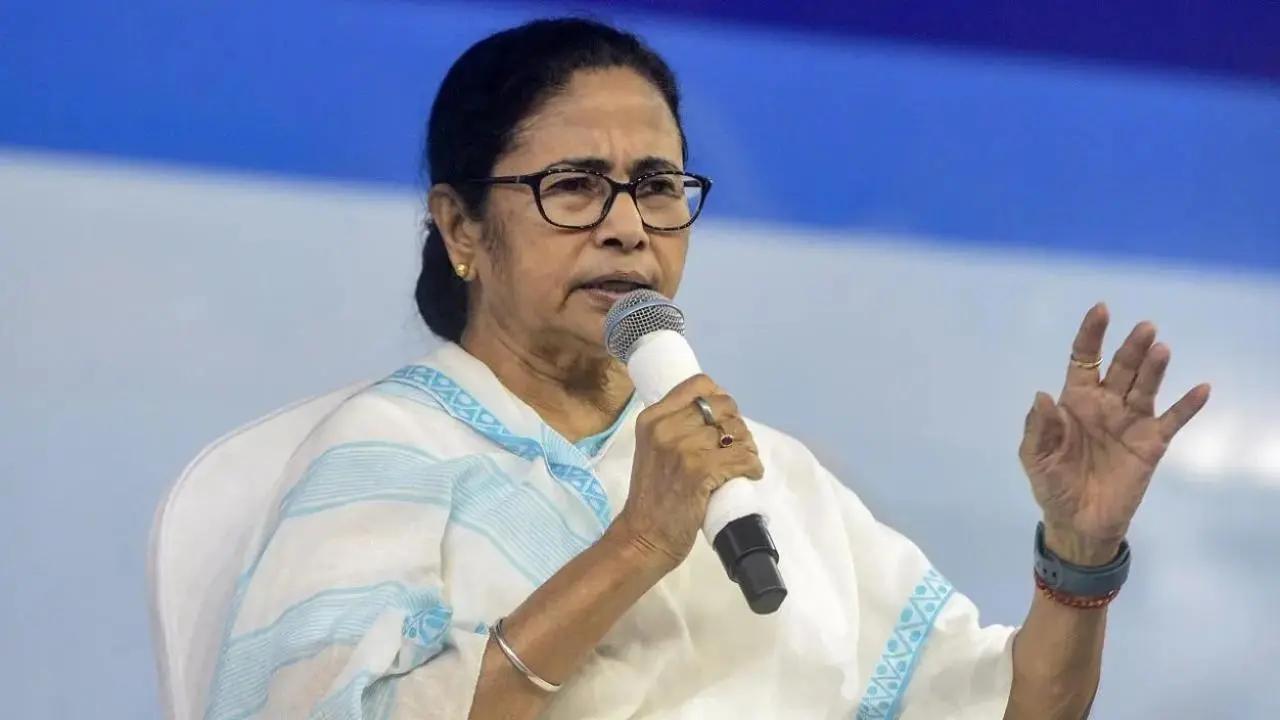The anti-rape bill, titled 'Aparajita Woman and Child Bill (West Bengal Criminal Laws and Amendment) Bill 2024', aims to strengthen protection for women and children in the state.

Mamata Banerjee/ File Photo
The West Bengal Assembly on Tuesday unanimously passed the 'Aparajita' Bill after the Opposition lent full support to it. The anti-rape bill, titled 'Aparajita Woman and Child Bill (West Bengal Criminal Laws and Amendment) Bill 2024', aims to strengthen protection for women and children through revision and introduction of new provisions concerning rape and other sexual offences.
The Bill now requires assent from West Bengal's Governor CV Ananda Bose and Union government before it can be enacted as a law.
'Aparajita' Bill: Legislation passed during 2-day special assembly session
Chief Minister Mamata Banerjee had called for a two-day special session of the assembly on Monday in the wake of the Kolkata doctor rape-murder case. In August, a woman medic at the state-run RG Kar Medical College and Hospital was brutally sexually assaulted and killed.
'Aparajita' Bill: Key Highlights of the Bill
- The 'Aparajita' Bill seeks to impose harsher penalties for rape, including the death penalty for those convicted if their crime resulted in the victim's death or leaves them in a vegetative state.
- The Bill proposes life imprisonment, without parole, for those guilty of rape or gang rape; the sentence will last for the rest of their natural lives.
- The proposed legislation seeks to increase the protection of women and children by changing current laws, such as the newly passed Bharatiya Nyay Sanhita 2023, Bharatiya Nagarik Suraksha Sanhita 2023, and the Protection of Children from Sexual Offences Act 2012, as they apply to West Bengal. These reforms aim to strengthen sanctions and create a framework for faster investigations and convictions of egregious crimes against women and children.
- The Bill proposes amendments to sections of the Bharatiya Nyay Sanhita that deal with punishments for rape, rape and murder, gang rape, repeat offenders, the disclosure of victims' identities, and acid attacks. The Bill seeks to amend Sections 64, 66, 70 (1), 71, 72(1), 73, 124(1) and 124 (2).
- Additionally, it seeks to remove Sections 65(1), 65 (2) and 70 (2) of the said Act relating to the punishment of offenders under the ages of 12, 16, and 18.
- The 'Aparajita Bill' proposes significant changes to the investigation process; it states that probes into rape cases must be completed within 21 days of the initial report, down from the previous two-month deadline. The Bill provides an extension of at most 15 days by a senior police officer with a written justification attached to records in the case diary.
- The Bill states that repeat offenders will either face life imprisonment or the death penalty with fines.
- The Bill also proposes the formation of a 'Special Task Force' at the district level which will be named 'Aparajita Task Force' and led by a Deputy Superintendent of Police. The task force will be probing sexual offences under new provisions.
- 'Aparajita' Bill also proposes the establishment of dedicated special courts and probe teams that will handle cases of child sex abuse, including rape, ensuring prompt justice for the victims/survivors and minimising their trauma.
- The Bill also aims to penalise the unauthorised publication of court proceedings with imprisonment of 3 to 5 years and fines.
With PTI inputs
 Subscribe today by clicking the link and stay updated with the latest news!" Click here!
Subscribe today by clicking the link and stay updated with the latest news!" Click here!










